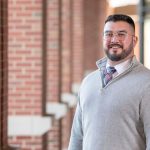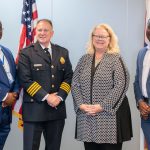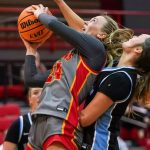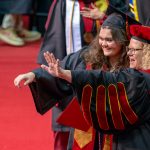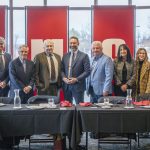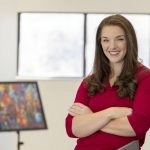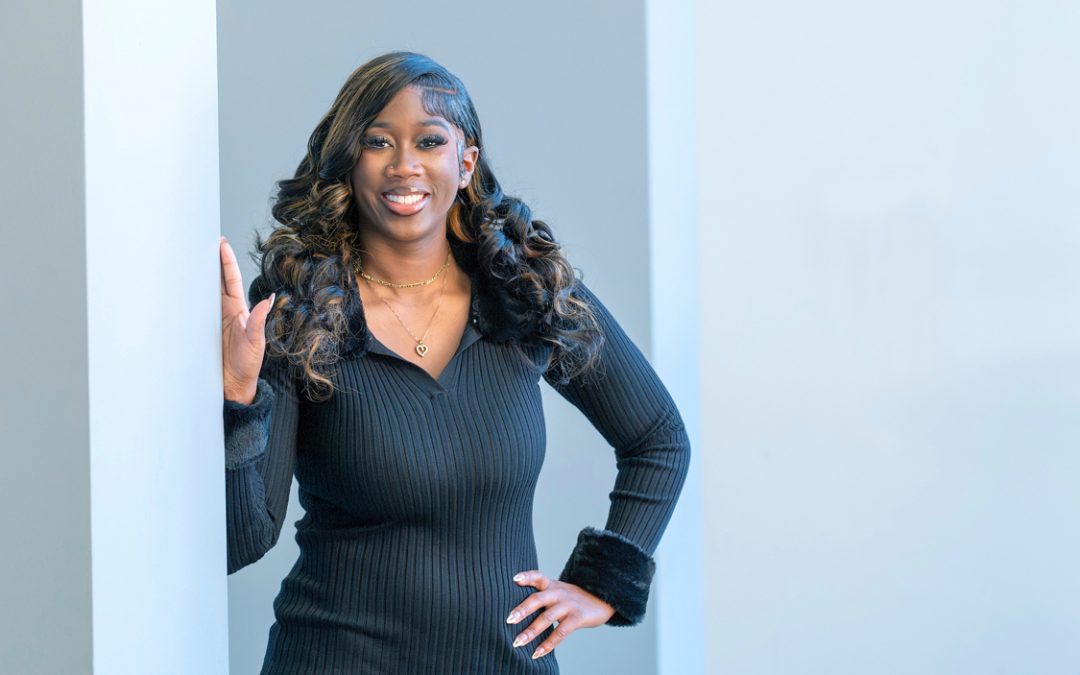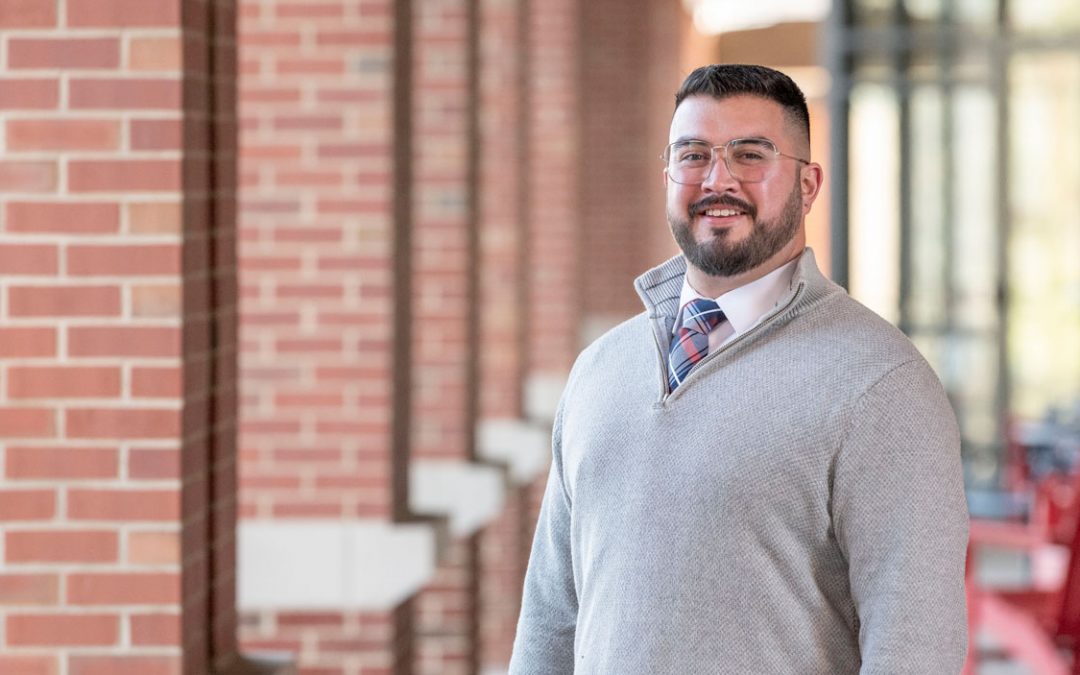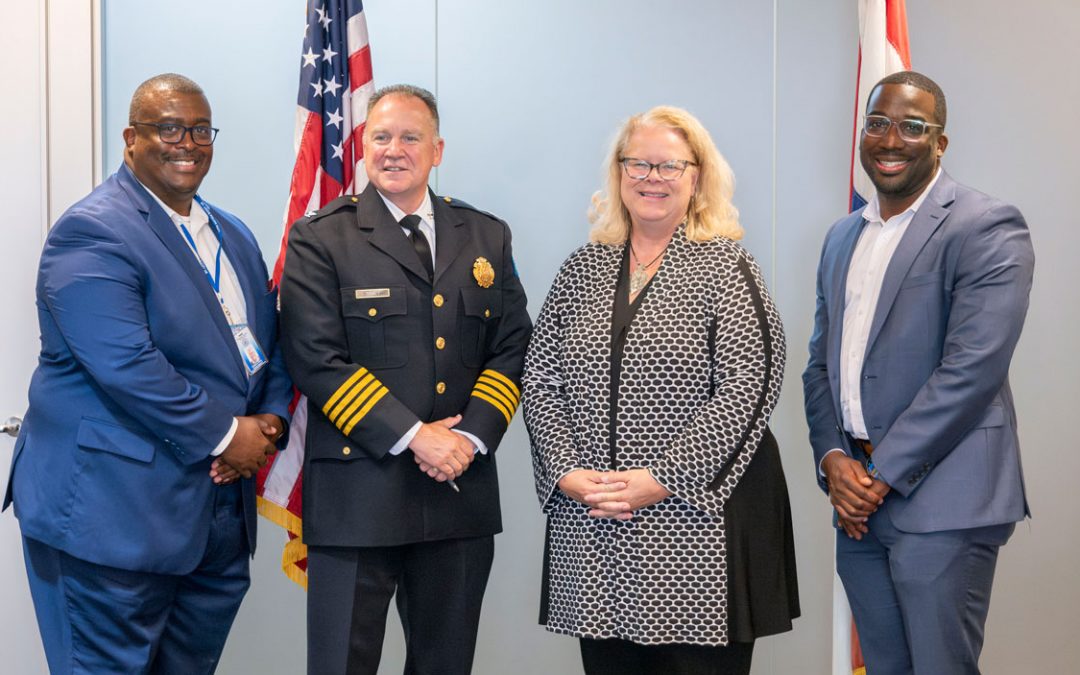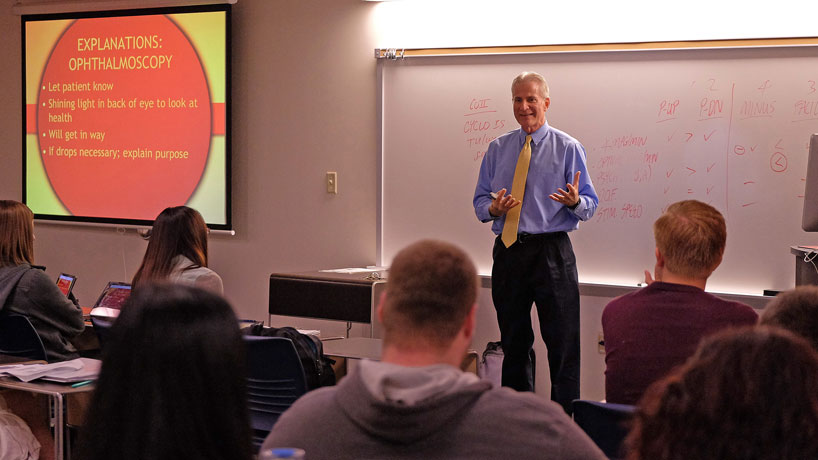
Professor of Optometry Ed Bennett was recognized with the 2015 Michael G. Harris Award for Excellence in Optometric Education by the American Academy of Optometry. (Photo by August Jennewein)
Ed Bennett dresses up for his classes – and not always in a button-up shirt. The professor of optometry at the University of Missouri–St. Louis puts on Halloween masks to teach crucial optometry lessons in filmed-at-home skits, later to be aired in his classroom.
“I’m a regular at the local costume shop in St. Charles,” Bennett joked.
Sometimes he’s Leonardo da Vinci teaching about neutralizing an eye’s optical power. And sometimes he’s Mr. Hall O. Ween himself, a crook on trial for selling illegal contact lenses that result in corneal scarring.
“It’s all in the name of education,” said Bennett, who specializes in contact lens research. “I’ve found that when the students are having fun, they’re learning and remembering more.”
His unique teaching style has earned him the 2015 Michael G. Harris Award for Excellence in Optometric Education from the American Academy of Optometry.
“I was very excited to be a recipient of this honor,” Bennett said. “The American Academy of Optometry means everything to me. It’s an organization whose mission is really lifelong learning for optometry.”
Bennett also knows the award’s namesake and said that he owes much of his inspired teaching to him.
“Mike Harris is an outstanding instructor,” he said. “I learned from him that if you’re going to be an effective teacher, you need to know the students, and you need to have them feel comfortable asking you questions.”
This semester, Bennett is teaching “Contact Lens I” and “Interpersonal Communication Skills.”
A communication class may sound unlikely for an optometry program, but Bennett said it’s a necessary course.
“You’re going to be working with patients,” he said, “so it’s important to be able to know how to carefully listen to patient history, how to communicate different examination procedures so that patients understand them and how to handle the dissatisfied patient, the quiet patient, the anxious patient, the talkative patient, et cetera.”
Bennett continues to keep the fun learning alive with his competitive take on the age-old clicker system as well. He breaks classes up into four teams that compete to get the greatest number of correct answers by the end of the school year.
“Usually it turns out to be quite close,” Bennett said, “so it gets to be competitive all the way to the last lecture.”
To keep it even more interesting, the winning team travels to Texas and visits Alcon, a global medical company that specializes in eye care. Each year, 10 to 12 students go.
“It’s like a bonus incentive,” Bennett said. “And it gets them to look at their power point before coming to class.”
An added layer of fun happens when every student in the class answers a clicker question correctly. Bennett hands out high fives – and not only to the students in the front row.
“I run around the entire room and high five every student,” he said.
And his students love it.
“I remember it was the last question of last year for the outgoing class, and I wanted so badly to have a high-five day, but it just wasn’t happening,” Bennett said. “And the questions I thought were easier, one or two people kept missing them. Then the last question I gave them, I thought was one of my tougher questions, so I had given up. I loved that class, and it was the last question ever, and sure enough they all got it! I went nuts. I flew around the room.”
It’s those moments that Bennett said make him feel so lucky to have the opportunity to be a teacher.
Media Coverage:
Contact Lens Spectrum





